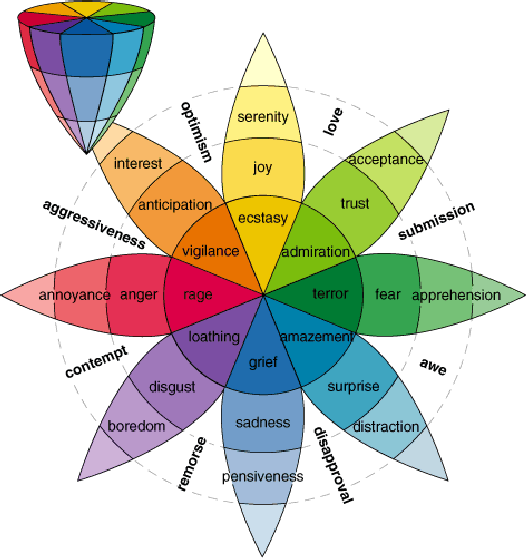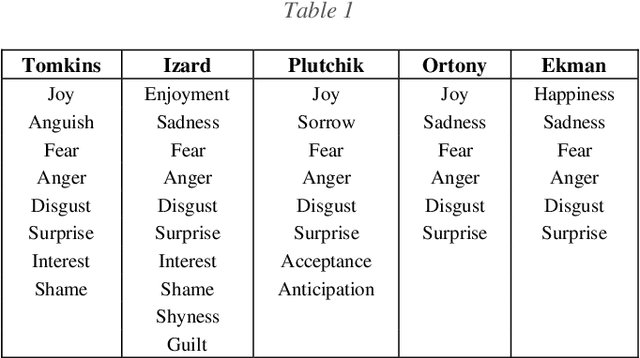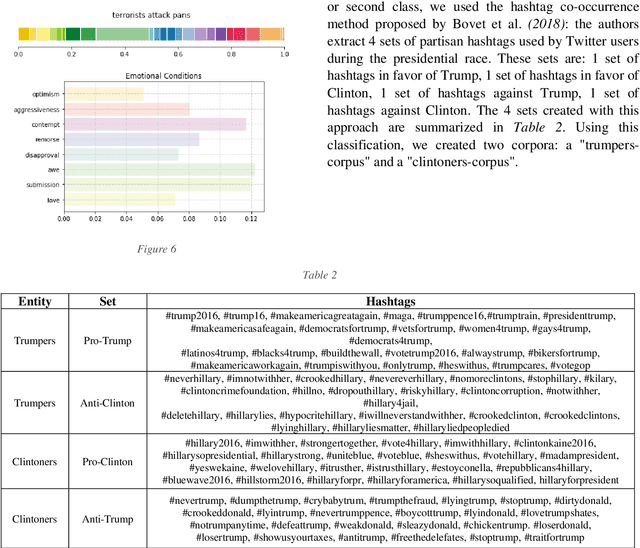Fernanda de Oliveira Capela
A computational model implementing subjectivity with the 'Room Theory'. The case of detecting Emotion from Text
May 12, 2020



Abstract:This work introduces a new method to consider subjectivity and general context dependency in text analysis and uses as example the detection of emotions conveyed in text. The proposed method takes into account subjectivity using a computational version of the Framework Theory by Marvin Minsky (1974) leveraging on the Word2Vec approach to text vectorization by Mikolov et al. (2013), used to generate distributed representation of words based on the context where they appear. Our approach is based on three components: 1. a framework/'room' representing the point of view; 2. a benchmark representing the criteria for the analysis - in this case the emotion classification, from a study of human emotions by Robert Plutchik (1980); and 3. the document to be analyzed. By using similarity measure between words, we are able to extract the relative relevance of the elements in the benchmark - intensities of emotions in our case study - for the document to be analyzed. Our method provides a measure that take into account the point of view of the entity reading the document. This method could be applied to all the cases where evaluating subjectivity is relevant to understand the relative value or meaning of a text. Subjectivity can be not limited to human reactions, but it could be used to provide a text with an interpretation related to a given domain ("room"). To evaluate our method, we used a test case in the political domain.
 Add to Chrome
Add to Chrome Add to Firefox
Add to Firefox Add to Edge
Add to Edge